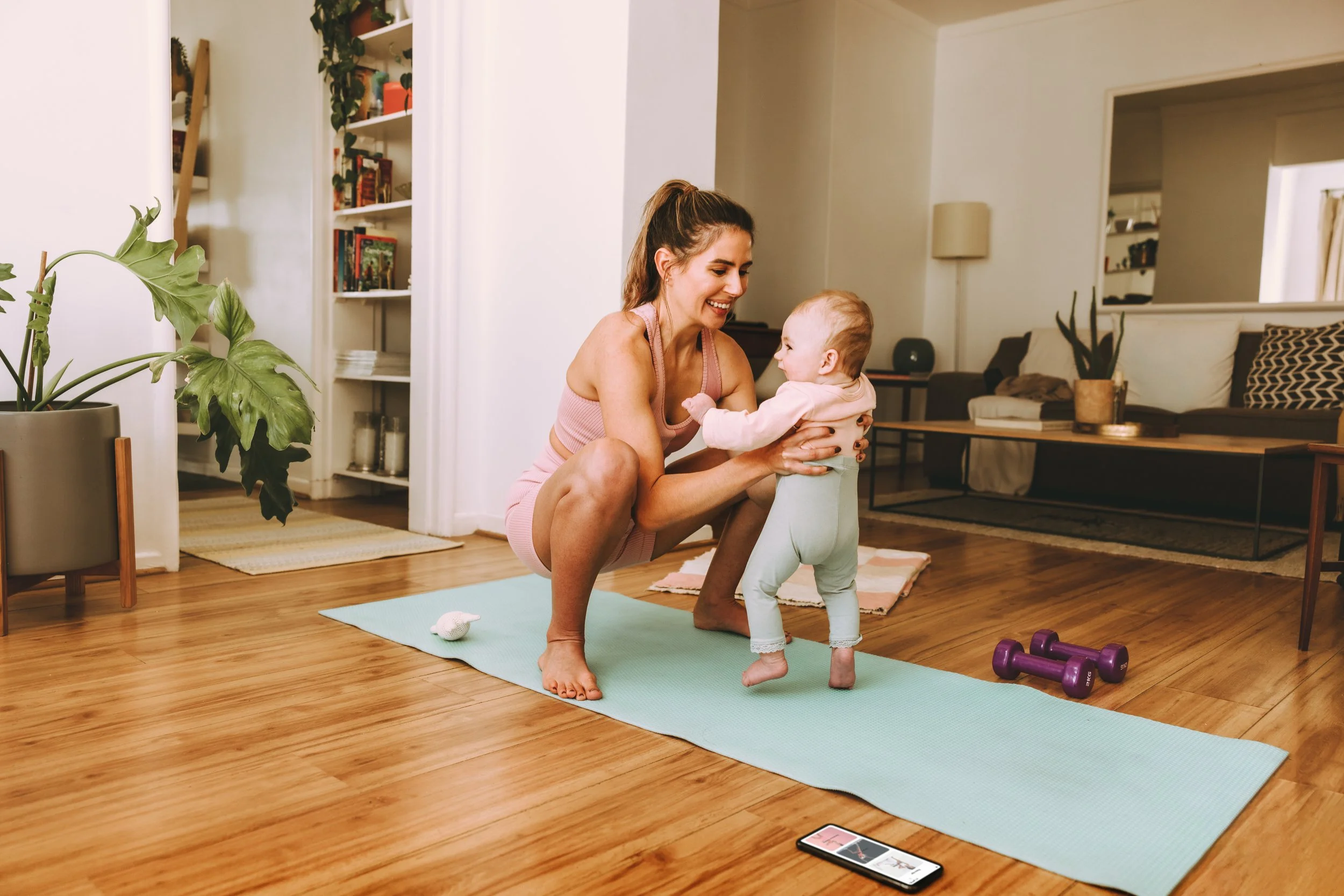No More Excuses: How to Break the Cycle and Finally Lose Weight
Every time you say, “I’ll start Monday,” you’re choosing excuses over results. Whenever you choose to watch Netflix, feel too tired to go to the gym tomorrow, or order fast food, you’re postponing your progress.
How to stop making excuses for weight loss?
This blog post will help you identify common excuses, understand their root, and offer real strategies to overcome them.
Coach’s Story: From Excuse-Maker to Accountability Leader
Just a year ago, I had to face a hard truth: my own excuses were holding me back. I went from crushing over 100 miles a month during the holidays… to barely logging 11 miles in January. And sure, I could blame the brutal Michigan winters or my packed client schedule—but deep down, I knew better.
I told myself things like:
“I’m too busy helping clients to focus on my own fitness.”
“I’ll run tomorrow—when the weather’s better.”
“Next time, I’ll get on the treadmill... maybe.”
Sound familiar? These were classic weight loss excuses in disguise — except I wasn’t just coaching others through them, I was stuck in them myself. My goal was clear: run another marathon and finally break 4 hours (at the time, my best was 4:11). But progress stalled until I made a choice: Excuses or results? I couldn’t have both.
Once I owned that, everything changed. I stopped resisting the treadmill and started appreciating it. I stopped dreading the work and started being grateful for the ability to move, to run, to push myself.
How to stop making excuses for weight loss—or any goal? Start by being honest with yourself. I did—and it turned my setback into fuel.
The Most Common Weight Loss Excuses
It’s never too late to start exercising or eating healthier, and no matter what weight loss excuses you have, they are possible to overcome. I have selected the 4 most common excuses I often hear from my clients. Here is what I advise them:
"I Don’t Have Time"
It’s probably the number one excuse, and on the surface, it makes sense — we’re busy. But let’s reframe it: 30 minutes a day is just 2% of your time.
You don't need two-hour gym sessions or perfect routines. You need consistency.
Try this:
Calendar block your workouts like appointments — treat them as non-negotiable.
Fit in morning walks before the day gets hectic.
Use at-home workouts (even 15–20 minutes) to skip the commute and excuses.
Break up your workout throughout the day. In terms of calorie-burning, three 10-minute workouts are just as effective as one 30-minute workout.
The truth is, if something matters, we make time for it. Even short bursts of intentional movement can compound into real results.
"It’s Too Expensive"
Gym memberships, personal trainers, organic groceries — it can all add up. But here’s a different way to look at it: What’s more expensive — a personal coach or chronic health issues later in life?
And how much do those takeout meals or daily lattes cost over a month?
Try this:
Follow free YouTube workouts or bodyweight routines that need zero equipment.
Walk — it’s free, low impact, and incredibly effective.
Start meal prepping simple, balanced meals at home to save money and calories.
Investing in your health doesn’t always mean spending more — it often means spending smarter.
"I’m Too Tired"
After a long day, the last thing you want to do is move your body. But here’s the irony: as Harvard Health Publishing reports, exercise actually gives you more energy over time.
Fatigue often stems from poor sleep, low activity, and inconsistent nutrition — all things that movement helps regulate.
Try this:
Commit to just 10 minutes. That’s it.
Do something gentle: yoga, stretching, a walk around the block.
Once you start, momentum often carries you forward.
You don’t need to feel motivated. You just need to move. Energy follows action.
"I Don’t Know What to Do"
When you're new to fitness or coming back after a break, the options can feel overwhelming. But here’s the thing: you don’t need to know everything to get started.
Try this:
Pick one beginner-friendly program and stick to it for a few weeks.
Use free or low-cost fitness apps that guide you step-by-step.
Don’t hesitate to consult a coach — even one session can bring clarity.
You don’t need the perfect plan. In fact, the perfect plan doesn’t even exist! You just need to begin. Clarity comes through action.
Get Started with Strong with Sarah
The Psychology Behind Excuses: Fear in Disguise
Excuses might sound like harmless delays — “I’ll start next week,” “I’m too tired today,” “This month’s too stressful.” But beneath these surface-level justifications often lies something deeper: fear.
Not laziness. Not lack of willpower. Fear.
At their core, excuses are protective. They shield us from discomfort, disappointment, and the possibility of failure. Telling yourself “I don’t have time” can feel better than facing the fear that even if you did make time, the results might not come. And that’s a tough thing to admit.
Fear of Failure
One of the most common psychological blocks is the fear of trying and still not succeeding.
“What if I give it my all, and I still can’t lose the weight?”
This fear leads to inaction masked as rationality — you convince yourself it's not the right time or that you're just not the "type" to get fit. It feels safer not to try than to try and fall short. But the irony is that avoiding action guarantees no results.
Fear of Change
Weight loss often means changing routines, habits, and even identity. If you’ve always identified as “the one who doesn’t work out” or “the foodie,” change can feel like losing a piece of yourself. There's a strange comfort in the familiar, even when that comfort is holding you back.
This is where many people unconsciously self-sabotage. You start strong, but the first sign of discomfort or disruption sends you back to old habits. Not because you’re weak, but because you haven’t learned how to replace those habits with ones that support your goals.
How to Break the Excuse Cycle
The first step is realizing that excuses are just thoughts dressed up as reasons. They feel real, but they’re often rooted in fear, habit, or a lack of clarity.
The good news? You can break the cycle with a simple, repeatable process:
Step 1: Identify Your Go-To Excuse
What’s the line you keep telling yourself?
“I’m too busy.”
“I’ll start Monday.”
“It’s just not the right time.”
Get specific. Awareness is everything. If it helps, you can write your excuses down to see a clear picture.
Step 2: Challenge Its Truth
Ask yourself: Is this really true? Or just comfortable?
Often, our excuses fall apart when we shine a light on them. Take a piece of paper with your excuses and add reasoning to them. Stay realistic – if your excuse is “I’m too tired after work,” ask yourself why. Is it poor sleep, lack of nutrition, or mental burnout?
Step 3: Replace It with One Small Habit
Big results start small. If your excuse is time, give yourself 5-10 minutes to reach your goal (go for a walk, plan your meals, etc.). If it's weather, commit to indoor movement. Small steps build trust with yourself.
Step 4: Track Progress Daily
Habits need to be repeated, which means tracking will help you keep yourself accountable. Ate healthy today? Ran in the park? Prepped meal for the week? Write it down, use an app, or check it off a habit tracker. Progress fuels motivation and builds momentum.
Step 5. Celebrate Consistency, Not Perfection
Missing a day doesn’t mean failure. Show up more often than not, and you win. The goal is momentum, not a perfect record.
Real-Life Micro-Changes That Work
When clients ask me what small changes they can introduce to their lives in order to step closer to their goals? I often advise them on these micro-changes that make a huge difference:
Take the stairs instead of the elevators
Do 5-10 squats while brushing teeth
Stretch for 5 minutes before going to bed
Add one extra vegetable to each meal
Spend 10 minutes planning your meals for the week
The key is to keep your micro-habits simple and make sure you stick to them every single day.
| “Because of the accountability, mindset trainings, and most importantly for me, the implementation of new habits, slowly but surely, the weight started to come off without me having to count calories.” | “I used to think there was something dramatic I had to do or perhaps one secret to losing weight, and Sarah has helped me realize that it's all about sustainable habits... I have lost 35 pounds and FIVE pant sizes with Strong with Sarah's support!” | “I learned A LOT about eating habits. I'm not new to the weight loss game... and still learned a lot. How am I in my 40's and didn't know what I should be eating macro wise. In three months I lost 17.3 lbs.” |
Build Accountability Into Your Routine
Tracking your goals is halfway to cementing your new habits and avoiding using weight loss excuses. What can help you reach the finish line is someone to keep you accountable.
If you find yourself slacking or forgetting to track your progress – accountability won’t let you stray away. Why, you wonder? Because it is capable of reducing decision fatigue and increasing follow-through.
Here is how to incorporate accountability into your life:
Join a support group
Track progress with fitness tracking apps
Share goals with a friend
The Choice is Yours: Excuses or Results?
At the end of the day, it all comes down to one truth: you can’t have both.
Excuses may feel safe, even justified—but they never lead to lasting change. The results you want are on the other side of discomfort, and the good news is, you’re not lazy or broken. You’re just stuck in a pattern—and patterns can change.
So ask yourself honestly: What do you want more—comfort or change?
Need a little help getting started? Join Strong with Sarah, where real support meets zero judgment. Whether it’s accountability, coaching, or just a plan that fits your life, we’ll turn your intentions into action—together.



